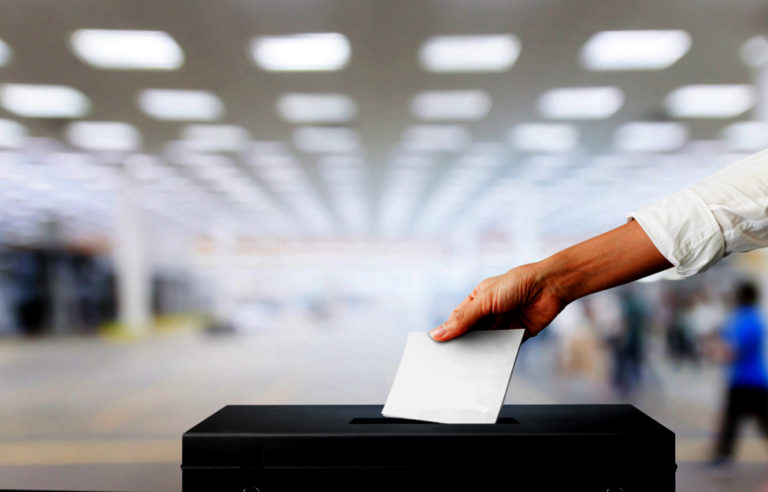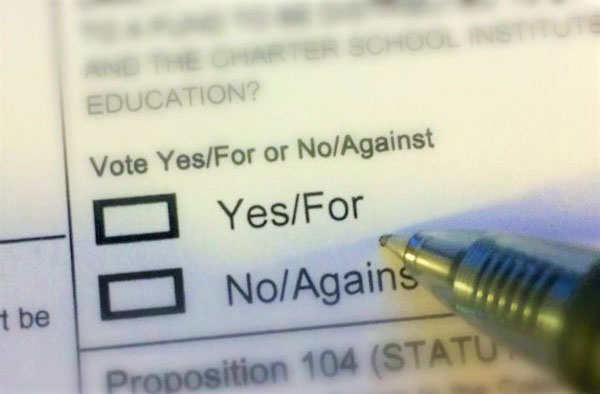Two competing bills have officially been introduced in the Wisconsin Legislature on ranked-choice voting. One bill would adopt it, the other would ban it.
Conservative legislators in Wisconsin have a clear choice in front of them: Cosponsor the new amendment to ban ranked-choice voting or sit by and watch as your election system gets changed underneath your feet.
Republicans have overwhelming evidence to oppose ranked-choice voting—a bad idea that confuses voters, throws ballots in the trash, threatens quick and accurate ballot counting, and turns winners into losers (and vice versa).
Ironically, even the two competing bills themselves are a decent argument against ranked-choice voting: One way or the other, they’re going to deliver a clear choice between a winner and a loser—something ranked-choice voting doesn’t do.
In red states, Republicans are banning ranked-choice voting. In blue states, Democrats at the ground level are second-guessing and even repealing it—at the same time Democrats in Congress are trying to bribe state and local governments into swallowing it.
In the real world, voters are counting on strong leaders in Wisconsin to know when to say no to a bad idea—and not take the weak middle ground that makes nobody happy.
Madeline Malisa, a senior fellow at OSP’s partner organization, the Foundation for Government Accountability, made the case against ranked-choice voting on the Vicki McKenna show. It’s worth a listen:
Red States Are Banning Ranked-Choice Voting
Florida, Tennessee, Idaho, Montana, and South Dakota have all proactively banned ranked-choice voting in the past two years. Here’s what they have had to say:
- In Idaho, Rep. Dale Hawkins said the measure to ban ranked-choice voting aimed, “[t]o ensure every vote is counted accurately, and the candidate with the most votes is elected.”
- In Tennessee, Sen. Brian Kelsey’s legislation was passed with the intention of “protecting election integrity and ensuring voter clarity at the ballot box.”
- In South Dakota, Sen. John Wiik called ranked-choice voting “a bad, complicated, and expensive idea,” and Rep. Kirk Chaffee explained how ranked-choice voting “disenfranchises” voters with confusing instructions.
- In Florida, Sen. Travis Hutson said, “One person should win, or if there is a runoff you should go to a top two.”
- In Montana, Rep. Lyn Hellegaard said that ranked-choice voting can eliminate top candidates, it’s overly complicated, and it delays the results.
Blue States Are Second-Guessing Ranked-Choice Voting
Even Democrat strongholds have had a case of buyer’s remorse over their choice to adopt ranked-choice voting. Here are the real-world results:
- In New York City, ranked-choice voting failed its biggest test with a long delay, massive ballot disqualification, and a humiliating error.
- In Maine, ranked-choice voting elected a second-place finisher to Congress, and made the top vote-getter a loser.
- In California, it took nearly two months and an outside audit to learn that a computer error resulted in the wrong candidate being named the winner—and in fact, the candidate with the third-most votes won under ranked-choice voting.
- In Virginia, an 80-percent Democratic county unanimously suspended its own experiment with ranked-choice voting, after an “all-of-the-above” disaster with delays, confusion, trashed ballots, and losers turned into winners.
Wisconsin Should Reject Ranked-Choice Voting
The elections that work best are the simplest, but ranked-choice voting threatens that in ways that should specifically worry Wisconsin.
We’ve seen the Left introduce complications in every way imaginable to tilt the result to their side—expanded mail-in voting and absentee rules, unmanned drop boxes, ballot harvesting, fighting photo ID at every step, college students voting without residency requirements, “Zuckerbucks” funding, and even third-party infiltration of the Green Bay clerk’s office.
Here in the real world, the problems facing our elections come from secrecy, manipulation, fraud, crime, and confusion—and ranked-choice voting solves none of it.
Second, we all sat and watched the problems with Milwaukee’s central count in 2020—the long delay and middle-of-the-night ballot drop, undermined confidence in our statewide outcome. By nature of the requirement of shifting votes around—central to the ranked-choice voting process—a central count would now be required for every election determined by ranked-choice voting. Milwaukee’s election-night problems would be exported statewide, rather than solved.
Finally, ranked-choice voting is pushed as a way to take extremism out of politics. Once again, the real-world results show the opposite: In Maine, a far-left candidate won a seat on the Portland Charter Commission thanks to ranked-choice voting—despite winning only four percent of the vote on the initial ballot.
It makes sense that a result like that would be intriguing to the radical leftists on the Isthmus in Madison, but it’s one more cause for concern for the rest of the state. Republicans should overwhelmingly vote to ban ranked-choice voting.



